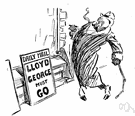must
(redirected from musts)Also found in: Thesaurus, Medical, Idioms, Encyclopedia.
must
must 1
(mŭst)must 2
(mŭst)must 3
(mŭst)must 4
(mŭst)must 5
(mŭst)must
(mʌst; unstressed məst; məs)must
(mʌst)must
(mʌst)must
(mʌst)must1
(mʌst)auxiliary v.andv., pres. sing.andpl. 1st, 2nd, and3rd pers. must, auxiliary verb.
must2
(mʌst)n.
must3
(mʌst)n.
must4
(mʌst)n.
must
Must is usually used to say that something is necessary. It can also be used to say that you believe that something is true. Must is called a 'modal'.
The expressions have to, have got to, and need to can sometimes be used with the same meaning as must.
The negative form of must is must not or mustn't. The negative forms of have to and have got to are don't have to and haven't got to. The negative form of need to is need not, needn't or don't need to. However, these negative forms do not all have the same meaning. This is explained below under negative necessity.
Must, have to, have got to, and need to are all used to say that it is necessary that something is done.
After must you use an infinitive without to. Don't use a to-infinitive. Don't say, for example, 'I must to go now.'
If someone is required to do something regularly, for example as a job or duty, say that they have to do it. Don't use 'must'.
If someone is required to do something on a particular occasion, say that they have got to do it or, in formal English and American English, that they have to do it.
In formal English, must is used to say that someone is required to do something by a rule or law.
If you want to say that something was necessary in the past, you use had to. Don't use 'must'.
If you want to say that something will be necessary in the future, you use will have to.
You use must not or mustn't to say that it is important that something is not done.
If you want to say that it is not necessary that something is done, you use don't have to, haven't got to, needn't, or don't need to.
Be Careful!
Don't use 'must not', 'mustn't', or 'have not to' to say that it is not necessary that something is done. Don't say, for example 'You mustn't explain' when you mean that it is not necessary to explain.
To say that it was not necessary for something to be done on a particular occasion in the past, use didn't have to or didn't need to.
You use must to say that you strongly believe that something is true, because of particular facts or circumstances.
Have to and have got to can also be used in this way, but not when the subject is you.
You can use must with be and an -ing form to say that you believe something is happening.
Be Careful!
Don't use must with an infinitive to say that you believe something is happening. Don't say, for example, 'He isn't in his office. He must work at home'.
To say that you believe something is not true, use cannot or can't. Don't use 'must' or 'have to' with not.
| Noun | 1. |  must - a necessary or essential thing; "seat belts are an absolute must" must - a necessary or essential thing; "seat belts are an absolute must"essential, necessary, requisite, necessity, requirement - anything indispensable; "food and shelter are necessities of life"; "the essentials of the good life"; "allow farmers to buy their requirements under favorable conditions"; "a place where the requisites of water fuel and fodder can be obtained" |
| 2. | must - grape juice before or during fermentation grape juice - the juice of grapes | |
| 3. |  must - the quality of smelling or tasting old or stale or mouldy must - the quality of smelling or tasting old or stale or mouldystaleness - having lost purity and freshness as a consequence of aging | |
| Adj. | 1. | must - highly recommended; "a book that is must reading" essential - basic and fundamental; "the essential feature" |
must
1must
2must
verbnounmust
2 [mʌst]I must do it → debo hacerlo, tengo que hacerlo
the patient must have complete quiet → el enfermo debe tener or tiene que tener or requiere silencio absoluto
I must buy some presents → tengo que comprar unos regalos
you must come again next year → tienes que volver el año que viene
you mustn't forget to send her a card → no te vayas a olvidar de mandarle una tarjeta
you mustn't touch it → no debes tocarlo
"must not be switched off" → no debe apagarse
I'll do it if I must → si me obligan, lo haré, lo haré si es necesario
do it if you must → hazlo si es necesario
if you must know, I'm Portuguese → para que lo sepa, soy portugués
one must not be too hopeful → no hay que ser demasiado optimista
I really must go now → de verdad que me tengo que ir ya
I must say, he's very irritating → tengo que decir que es muy irritante
why must you always be so rude? → ¿por qué tienes que ser siempre tan maleducado?
you must be tired → debes de estar cansado
it must be cold up there → debe de hacer frío allí arriba
he must be there by now → ya debe de estar allí
it must be eight o'clock by now → ya deben de ser las ocho
but you must have seen her! → ¡pero debes de haberla visto!
there must be a reason → debe de haber or tiene que haber una razón
must
(mast) – negative short form ˈmustn't (-snt) – verbmust
→ debermust
- We have to get him to a hospital (US)
We must get him to hospital (UK) → Tenemos que llevarlo a un hospital